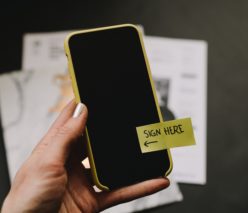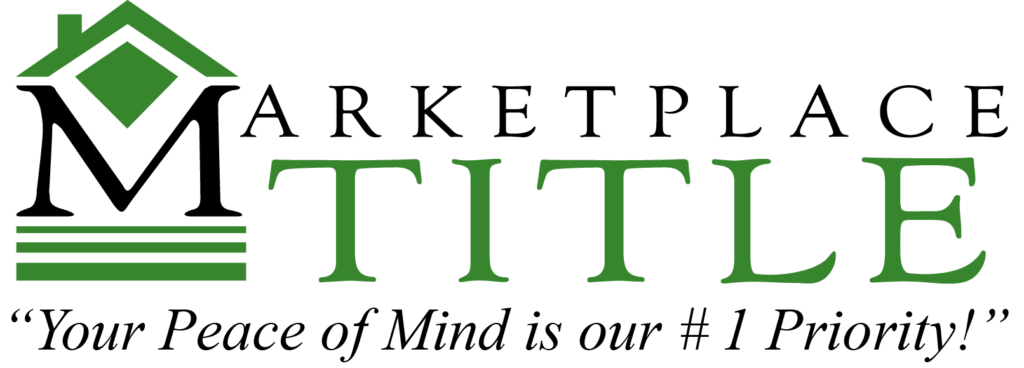 Legal and regulatory roadblocks and industry-wide reluctance to change, especially in the lending and title settlement sectors, have kept real estate closings using centuries-old processes, while other industries have realized the time-, effort-, and cost-saving benefits afforded by technology. Real estate agents’ widespread adoption of e-signing for sale and purchase contracts has been the exception, and provides an example of the difference technology can make in their customers’ experience.
Legal and regulatory roadblocks and industry-wide reluctance to change, especially in the lending and title settlement sectors, have kept real estate closings using centuries-old processes, while other industries have realized the time-, effort-, and cost-saving benefits afforded by technology. Real estate agents’ widespread adoption of e-signing for sale and purchase contracts has been the exception, and provides an example of the difference technology can make in their customers’ experience.
Now, lenders and title insurance companies are finally catching up. Lawmakers are gradually removing legal barriers to electronic closings, or “e-closings”, and lenders are making the necessary investments in systems and new processes with the expectation of tremendous financial savings the technology can bring. Sellers and buyers will benefit from the more convenient and streamlined process and, presumably, borrowers will have the benefit of cost savings passed on from lenders. Some title insurance companies are gaining an advantage over more conservative or complacent competitors by staying at the forefront of eClosing processes.
Real estate agents will soon have clients that are using these technologies, whether because their lender or closing agent suggests it, or simply because the clients themselves demand the convenience. Here is a summary and comparison of the various processes currently in use so you will be better prepared when your clients inevitably ask.
The Traditional Process: “Wet Ink”
This is the process everybody is familiar with, because it has been used for centuries. The buyer or seller meets with the closing agent in the closing agent’s office and encounters the stack of necessary closing documents printed on paper. The signer uses ink to sign them, and the closing agent uses ink to notarize when necessary. As a variation on this process, there is now an established sector of remote signing agents who, for a fee, will receive the documents from the closing agent and meet with the signer to ink sign them and will notarize the documents when needed. The remote signer then ships the original documents back to the closing agent. You should advise your clients to be sure to stretch out and warm up their signing wrists before stepping into a traditional wet ink closing.
Hybrid E-closing
A hybrid e-closing involves electronic signing of some documents, but wet ink signing of others. This process is becoming more common, as it gives lenders some of the efficiency benefits of electronic document signing, while allowing for the latency in adoption of systems to account for the more significant documents in a loan transaction. Certain documents, especially the promissory note and any notarized documents, have broader requirements for validity than others. Laws require the lender to be in possession of the original note to be able to enforce the borrower’s payment obligations, whereas paper or electronic copies of many other documents are sufficient. While there are available technologies and standards in place for a lender to show “possession” of a fully electronic note, lenders have been slow to adopt them. Likewise, processes to electronically notarize documents have existed for some time, but notaries have not previously seen a demand great enough to push them to prepare to electronically notarize documents.
Generally, borrowers are given access to the e-sign documents to review and sign at their convenience shortly before the closing meeting, and those documents are electronically delivered, saving the costs and effort involved in printing and handling of paper documents. Because some documents are wet ink signed, this process still requires a face-to-face meeting with the closing agent or remote signing agent, and handling of some original documents, but e-signing many of the documents is much easier and saves exertion on the signer’s wrist.
Fully Electronic Closing/Remote Online Notarization
In a fully electronic closing, none of the documents is ever printed or shipped. The seller or buyer can review the documents electronically on a desktop, laptop, tablet or smartphone, and then e-sign by various methods. They can type their name, use a mouse to create an electronic signature, or create their e-signature by writing directly on a touchscreen device. Borrowers sign electronic promissory notes, or e-notes, that comply with high security standards set up by the lending industry and approved by the likes of Fannie Mae and Freddie Mac. The e-notes are delivered to the lender and stored electronically during the life of the loan. The electronic standards in place ensure that only one copy of the e-note exists that can be enforced at any time. The notary can apply an electronic notary seal to those documents that need it. All of the electronic documents also apply systems that, after the e-signing, “seal” the document and show evidence if anything on the document has been altered. This is the easiest process for signers; they create their e-signature once, and then just click or tap on their device to apply the signature where it is necessary.
The fully electronic closing can take place in a face-to-face meeting, where the closing agent or signing agent would use a laptop or tablet for presenting, reviewing, and e-signing the documents. However, remote online notarization (RON) provides even greater flexibility, efficiency and convenience. Using RON, the closing documents are made available to the signer to review at their convenience before the signing, using their desktop, laptop, tablet or smartphone. When they are satisfied and ready to sign, they connect via a video conference (similar to Microsoft’s Skype or Apple’s Facetime) to a notary signing agent in a state that has a law authorizing RON. Using this method, the signer is considered to be “present” with the notary in that state and signing there, even though the signer may actually be anywhere in the world! The signer will show their identification to the notary, and also will be required to answer a number of identity verification questions to prove their identity. This extra step is in place to avoid possible fraud, and as a result, RON is arguably more secure against fraud than traditional in-person notarization. Once the signer’s identity is verified, they will proceed to e-sign all of the documents, and the notary will e-sign and apply an electronic notary seal. The documents are then electronically delivered to all concerned parties without any printing or shipping. Remote online notaries are available nearly anytime, day or night, providing maximum convenience to the signers.
There are limitations to the use of fully electronic closings and RON. As mentioned previously, lenders have been slow to adopt e-notes, although the pace of adoption by national lenders appears to be accelerating. Also, in order to conduct a fully electronic closing, the closing agent has to be prepared for electronic notarization. Some limitations still need to be overcome to use RON: In states like Florida, where RON is not authorized for the State’s notaries, some title insurance companies will not issue policies on closings using RON. Also, the required additional identity verification procedure is currently only available if the signer has a U.S. Social Security number.
Refer Clients to Marketplace Title with Confidence
Marketplace Title is dedicated to providing the best service of any Florida title company, and therefore has embraced all of the available signing processes. We are e-notary capable, and have an established relationship with a title insurance company that recognizes RON transactions in Florida. We are also monitoring the State of Florida’s progress toward authorizing RON for Florida notaries, and will be among the first to offer in-house remote online notaries when it is authorized. You can rest assured that we are ready to handle any transaction, and prepared to guide your clients (and you) through the new processes. Feel free to contact us with any questions you may have.

